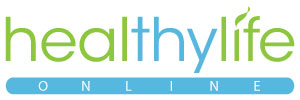Breastfeeding Benefit Moms, too!
Much has been written about the benefits of breastfeeding for the newborn infant, and it is without a doubt that it does provide numerous health benefits. Besides the nutrients contained in the breast milk, which is necessary for the infant’s rapid growth, the antibodies contained in the colostrum (also called the first milk) also increases the infant’s immune health protecting him from different illnesses and infections.
Many have forgotten, however, that the key to successful breastfeeding is the mother — and not enough has been said about the various benefits mothers can derive from breastfeeding. In case some moms are wondering what the benefits are, here are just a few bonuses you can get for giving your child the best milk nature can provide:
Promotes faster recovery after childbirth. Mothers who breastfeed recover from childbirth more quickly and easily. The hormone oxytocin, released during breastfeeding, acts to return the uterus to its regular size more quickly and can reduce postpartum bleeding.
Promotes postpartum weight loss. It has been observed breastfeeding mothers showed significantly larger reductions in their hip circumference and increased fat loss in one month after giving birth (postpartum) than those who formula-feed their babies. Breastfeeding mothers tend to return to their pre-pregnant weight at an earlier time.
Reduces the risk of breast cancer. Breastfeeding moms reduce their risk for developing breast cancer by as much as 25 percent. The reduction in cancer risk comes in proportion to the cumulative time given to breastfeeding. That means, the more months or years a mother breastfeeds, the lower her risk of developing breast cancer.
Diminishes the risk of uterine and ovarian cancer. A mother’s estrogen levels are lower during lactation. It is believed that the less the estrogen available to stimulate the lining of the uterus (as well as the breast tissue), the lower is the risk of these tissues becoming cancerous.
Helps in child spacing. Since breastfeeding delays ovulation, the longer a mother breastfeeds the more she is able to practice natural child spacing, if she desires. Exclusive breastfeeding delays the return of the mother’s menstrual period, which can help extend the time between pregnancies. Exclusive breastfeeding may provide a natural form of contraception if: the mother’s menses have not returned, the baby is breastfeeding day and night, and the baby is less than six months old.
Promotes emotional health. Besides being good for the body, breastfeeding is also good for the mother’s emotional well being. Studies show that breastfeeding mothers show less postpartum anxiety and depression than those who opt to formula-feed their babies.
Lessens chance of osteoporosis. Non-breastfeeding women are four times more likely to develop osteoporosis than women who breastfeed. They also have a greater chance of suffering from hip fractures in the post-menopausal years.
Helps reduce other health risks. Some studies have found that breastfeeding may also reduce the risk of developing type-2 diabetes, rheumatoid arthritis, and cardiovascular disease, including high blood pressure and high cholesterol.
Saves you money. Besides being all natural, breastfeeding will definitely result in cash savings since costly infant formulas will no longer be needed. It normally costs around USD1,200 a year to formula-feed a baby. Even taking into consideration the slight increase in food costs to a breastfeeding mother (nursing moms will need, at most, an extra 400 to 500 calories every day to produce sufficient milk for their baby), the American Academy of Pediatrics estimates that opting to breastfeed your baby will result in about USD400 savings in the first year.
Saves you time. Instead of having to constantly wash, sanitize and prepare your baby’s bottle all you have to do is to put your baby to your breast. At night, putting your baby to your breast is much easier and simpler than getting up to prepare a bottle of infant formula.
Breastfeeding is definitely the healthier choice for both mother and baby, the few exceptions are when the mother is ill or taking certain drugs or medications or is infected with human T-lymph tropic virus, HIV if not taking ARVs, or has active untreated tuberculosis.
_________________________
References
www.askdrsears.com/topics/breastfeeding/why-breast-best/7-ways-breastfeeding-benefits-mothers
www.healthychildren.org/English/ages-stages/baby/breastfeeding/Pages/Benefits-of-Breastfeeding-for-Mom.aspx
Disclaimer. This website is intended for informational purposes only and is not intended to render medical advice. Any information provided on HealthyLife Online should not be used for diagnosing or treating a health problem or disease. It is not a substitute for professional care. If you suspect a health problem, you should consult a medical professional or your health care provider. Do not disregard professional medical advice or delay seeking professional medical advice because of something you may have read on this website. The website does not recommend nor endorse any specific tests, products, procedures, opinions, or other information that may be referenced in the Website.

